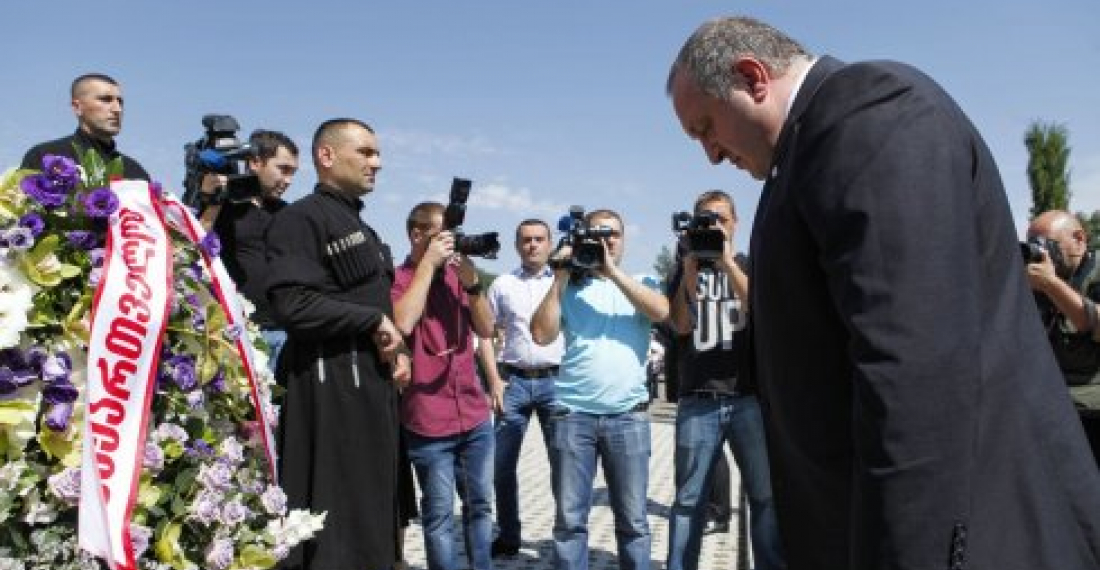Georgia today marked eight years since the five-day war with Russia in 2008, which left hundreds of civilians and soldiers dead, and the political lanscape of the region permanently altered.
Prime Minister Giorgi Kvirikashvili, President Giorgi Margvelashvili and other leading officials paid tribute to the victims of the war at Mukhatgverdi Brothers’ Cemetery on the outskirts of Tbilisi.
"There is no alternative to Georgia’s unification,” said Kvirikashvili. "I bow my head before the memory of all our brave soldiers who died for our homeland in this brutal and unbalanced war.”
"Although the war lasted for only several days, our country suffered a huge blow. I pay tribute to the memory of all those hero soldiers who fell in this cruel, unequal battle for homeland," he said.
Since the war, the territories of South Ossetia and Abkhazia have declared themselves independent states, though this has only been recognised by Russia and a few of its tiny allies. The leader of South Ossetia has also said he wants to join the Russian Federation.
Speaking at Mukhatgverdi Brothers’ Cemetery, President Giorgi Margvelashvili was defiant.
“Russia will never get away with injustice it has committed against its neighboring nation," he told journalists. "This black stain on [Russia] – occupation and then recognition of so called ‘independent states’ [Abkhazia and South Ossetia] on the territory of Georgia, will be a problem that Russia will always face."
SOURCE: commonspace.eu and agencies
PHOTO: President Giorgi Margvelashvili commemorating the victims of the 2008 war. Picture courtesy of www.twitter.com/MargvelashviliG.






